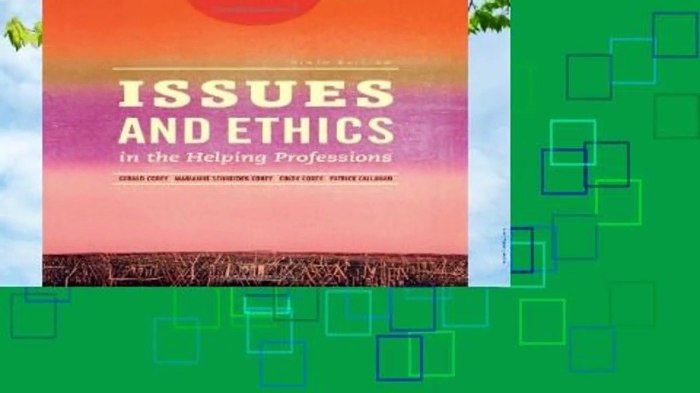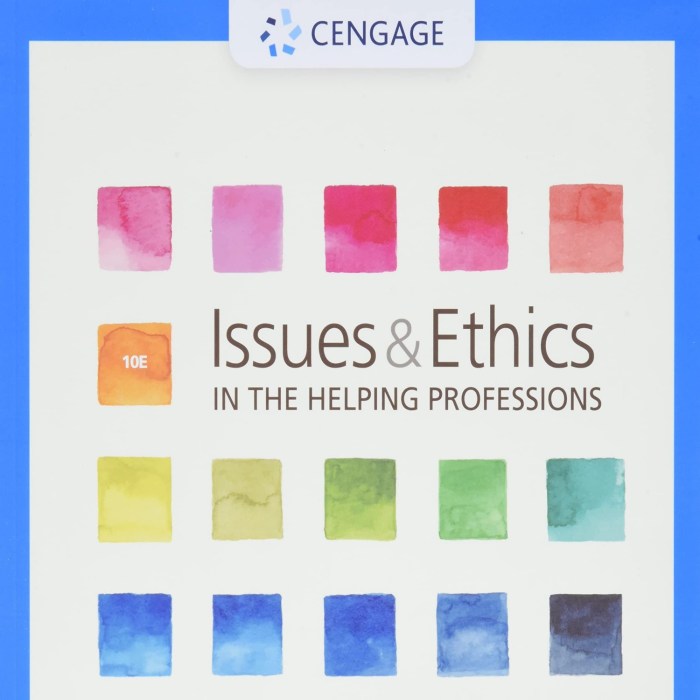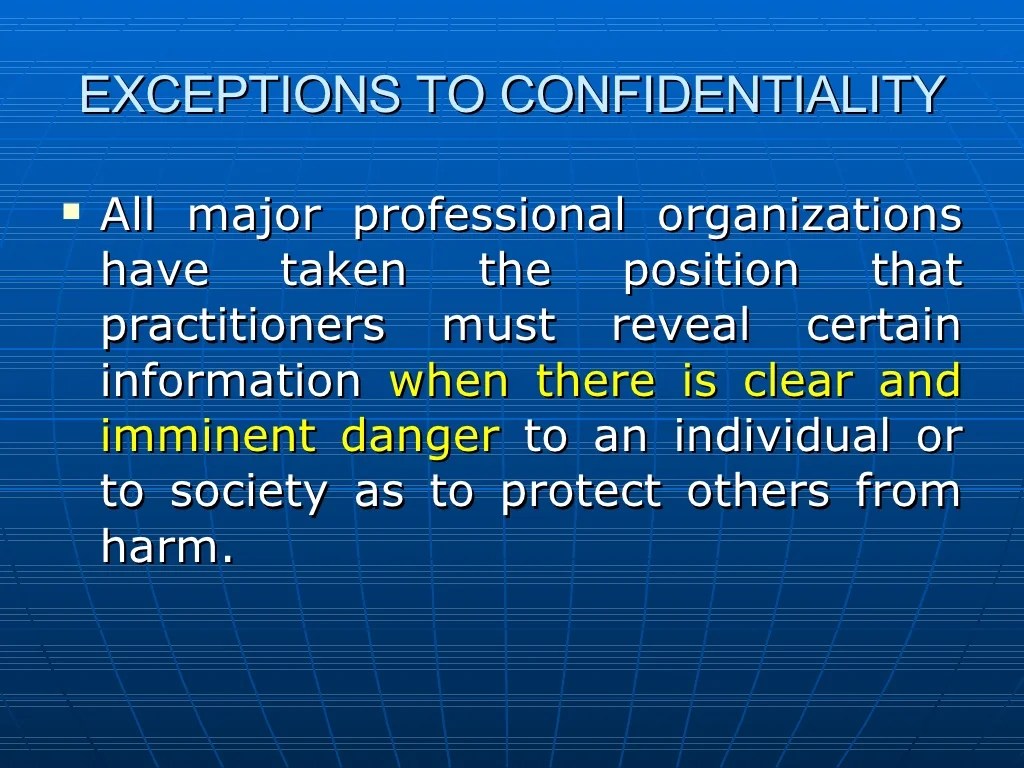Unveiling the intricate web of issues and ethics in the helping professions pdf, this comprehensive guide embarks on an enlightening journey, exploring the foundational principles, boundaries, cultural considerations, technological advancements, and legal implications that shape ethical practice in this field.
As we delve into the complexities of the helping professions, we uncover the ethical dilemmas that arise in daily practice and the strategies employed to navigate them responsibly. From maintaining confidentiality to respecting boundaries, cultural sensitivity to technological advancements, this guide provides a roadmap for ethical decision-making and professional development.
Ethical Principles in the Helping Professions

Ethical principles serve as the cornerstone of helping professions, guiding professionals in their interactions with clients and upholding the integrity of their work. These principles include:
Respect for Autonomy
Respecting the autonomy of clients means acknowledging their right to make decisions about their own lives and treatment. This includes providing them with information and support to enable informed decision-making.
Beneficence and Non-Maleficence
Professionals are obligated to act in the best interests of their clients and avoid causing harm. This principle emphasizes the importance of providing services that are both beneficial and safe.
Justice
Ethical principles demand that professionals treat all clients fairly and equitably, regardless of their background or circumstances. This includes ensuring access to services, protecting their rights, and addressing disparities in care.
Confidentiality and Privacy
Maintaining the confidentiality and privacy of clients is crucial for building trust and ensuring their well-being. Professionals must take appropriate measures to protect client information and respect their boundaries.
Boundaries and Dual Relationships
Appropriate boundaries in professional relationships are essential for maintaining objectivity and preventing conflicts of interest. These boundaries include:
Professional Distance
Professionals must maintain a professional distance from clients, avoiding personal or romantic relationships that could impair their ability to provide objective services.
Dual Relationships
Dual relationships occur when a professional has multiple roles with a client, such as being both a therapist and a friend. These relationships can create ethical conflicts and should be avoided whenever possible.
Managing Dual Relationships Ethically
In some cases, dual relationships may be unavoidable. In such situations, professionals must carefully consider the potential risks and benefits and implement strategies to minimize conflicts of interest, such as seeking supervision or involving a third party.
Cultural Sensitivity and Diversity

Cultural sensitivity is crucial in helping professions, as it allows professionals to understand and respond to the unique needs of clients from diverse backgrounds. This includes:
Understanding Cultural Differences
Professionals must be aware of and respect the cultural values, beliefs, and practices of their clients. This understanding enables them to provide culturally appropriate services and avoid misunderstandings.
Cultural Humility
Cultural humility involves recognizing one’s own cultural biases and limitations and being open to learning from clients about their experiences. This approach fosters respect and promotes effective communication.
Addressing Cultural Stereotypes
Professionals must challenge cultural stereotypes and assumptions that can negatively impact client care. They should be mindful of their own biases and strive to provide unbiased and equitable services.
Technology and Ethical Considerations
The use of technology in helping professions raises important ethical considerations, including:
Privacy and Confidentiality
Professionals must ensure the privacy and confidentiality of client information when using electronic communication and online platforms.
Artificial Intelligence and Machine Learning
The use of artificial intelligence (AI) and machine learning in the field has ethical implications, such as concerns about bias, transparency, and accountability.
Professional Boundaries
Technology can blur professional boundaries, making it essential for professionals to establish clear guidelines for online interactions and maintain appropriate distance.
Professional Development and Ethical Practice
Ongoing professional development is crucial for maintaining ethical practice in helping professions. This includes:
Continuing Education
Professionals must engage in ongoing continuing education to stay abreast of best practices and ethical standards in their field.
Supervision and Mentorship
Supervision and mentorship provide professionals with support and guidance in navigating ethical challenges and maintaining ethical practice.
Self-Reflection and Accountability
Professionals should regularly reflect on their own ethical conduct and seek feedback from colleagues or supervisors to ensure they are adhering to ethical standards.
Legal Implications and Ethical Decision-Making: Issues And Ethics In The Helping Professions Pdf

Helping professionals operate within a legal framework that governs their practice and ethical conduct. This includes:
Legal Requirements
Professionals must be aware of and comply with legal requirements, such as reporting suspected abuse or neglect and obtaining informed consent from clients.
Ethical Considerations
Ethical considerations may extend beyond legal requirements. Professionals must balance legal obligations with their ethical principles to make informed decisions.
Informed Consent and Documentation, Issues and ethics in the helping professions pdf
Professionals must obtain informed consent from clients before providing services and maintain accurate and detailed documentation to ensure transparency and accountability.
Top FAQs
What are the core ethical principles in the helping professions?
The core ethical principles include beneficence (doing good), non-maleficence (avoiding harm), autonomy (respecting client self-determination), justice (fairness and equity), and confidentiality (protecting client privacy).
How can practitioners effectively manage dual relationships?
Managing dual relationships requires careful consideration of potential conflicts of interest, transparency with clients, and adherence to ethical guidelines to avoid exploitation or harm.
What strategies can be employed to foster cultural sensitivity in the helping professions?
Fostering cultural sensitivity involves understanding and respecting diverse cultural backgrounds, practicing active listening, seeking cultural consultation when needed, and continuously educating oneself about cultural differences.
How does technology impact ethical considerations in the helping professions?
Technology brings ethical concerns regarding privacy, confidentiality, informed consent, and the potential misuse of data. Practitioners must navigate these issues responsibly and adhere to ethical guidelines for technology use.
What is the importance of ongoing professional development for ethical practice?
Ongoing professional development is crucial for staying abreast of ethical issues, emerging best practices, and legal requirements. It ensures that practitioners maintain their competence and uphold ethical standards throughout their careers.